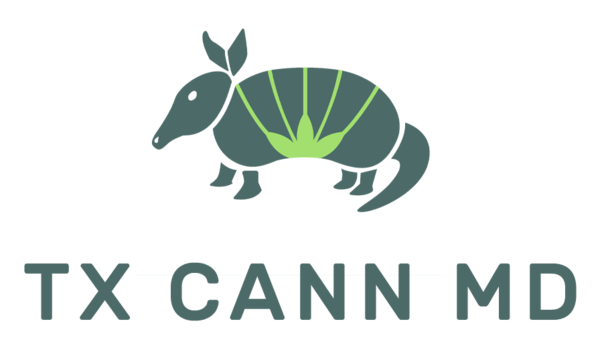Medical marijuana has sparked intense debate, especially regarding its potential benefits and risks for treating seizures. As research continues to unfold, many are left wondering if this controversial option could provide relief for those battling epilepsy.
While some studies suggest that certain cannabis compounds might reduce seizure frequency, the landscape remains complicated and fraught with uncertainty.
Despite anecdotal support from users, medical professionals urge caution. The lack of universally approved forms and the potential for adverse effects raise significant concerns.
For every success story, there are reports of exacerbated symptoms or even harmful consequences. Understanding the balance between the possible benefits and inherent risks is crucial for anyone considering medical marijuana as a treatment option.
Understanding Medical Marijuana
Medical marijuana serves as a treatment option for various medical conditions, including seizures. Its effectiveness relies on multiple components found in the cannabis plant.
Definition and Components
Medical marijuana refers to the cannabis plant and its derived compounds, primarily cannabinoids. The two most significant cannabinoids are Tetrahydrocannabinol (THC) and Cannabidiol (CBD).
THC is known for inducing psychoactive effects, which include the sensation of “getting high.” In contrast, CBD does not produce these effects but has demonstrated efficacy in managing medical conditions, particularly seizure disorders.
The cannabis plant contains over 100 cannabinoids, each with distinct biological interactions.
How It Works in the Body
Cannabinoids interact with the endocannabinoid system, composed of receptors throughout the brain and body. Here’s how cannabinoids function concerning seizures:
- Binding to Receptors: CBD binds to various receptors but primarily interacts with CB1 receptors prevalent on neurons. This binding mechanism acts as a brake to decrease excessive neuronal excitement during seizures.
- Modulating Neuronal Activity: CBD’s modulation of neuronal signaling includes influencing neurotransmitter release. This action can lead to a reduction in seizure frequency and intensity.
- Anti-inflammatory Effects: CBD exhibits anti-inflammatory properties that may contribute to its therapeutic effects, supporting overall brain health.
Utilizing medical marijuana in managing seizures requires careful evaluation of individual responses, potential benefits, and associated risks.
Benefits of Medical Marijuana for Seizures
Medical marijuana, particularly CBD, has shown significant potential in managing seizures for individuals with epilepsy. Its benefits stem from robust clinical evidence and well-documented mechanisms of action.
Mechanisms of Action
The mechanisms through which CBD operates in seizure management are primarily linked to its interaction with the endocannabinoid system. CBD binds to receptors that modulate neuronal activity, reducing excessive neuronal excitement.
This action leads to a decrease in seizure frequency. Furthermore, CBD exhibits anti-inflammatory properties, which may alleviate other underlying factors contributing to seizure disorders.
Understanding these mechanisms enhances the overall comprehension of how medical marijuana functions in treating seizures.
Risks and Side Effects
Considering medical marijuana for seizures involves understanding potential risks and side effects. While some patients experience significant benefits, others encounter undesirable outcomes.
Common Adverse Effects
You may encounter common side effects when using CBD as a treatment for seizures.
- Somnolence: Drowsiness is frequently reported in studies involving CBD. It can impact daily activities and overall quality of life.
- Changes in Appetite: You might experience alterations in hunger and food intake.
- Diarrhea: Gastrointestinal issues, including diarrhea, can occur in some users.
- Fatigue: Increased tiredness may affect your energy levels and motivation.
Monitoring these side effects is essential to gauge the overall effectiveness and tolerability of CBD treatment.
Long-Term Considerations
Long-term use of medical marijuana raises important factors to consider.
- Dependency Potential: Although CBD is not considered addictive, concerns about dependency related to other cannabinoids exist, particularly THC.
- Liver Function: Regular use of CBD can affect liver enzymes, warranting regular blood tests to monitor liver health.
- Cognitive Effects: Prolonged exposure to THC may lead to changes in cognition, impacting memory and concentration over time.
Evaluating these risks in the context of potential benefits is crucial before starting any treatment regimen involving medical marijuana.
Comparison with Traditional Medications
Medical marijuana, particularly CBD, contrasts sharply with traditional antiepileptic medications in effectiveness and safety. Understanding these differences is crucial for informed treatment decisions.
Effectiveness
CBD demonstrates effectiveness where traditional medications may fail. Clinical trials indicate that CBD significantly reduces seizure frequency in patients with Lennox-Gastaut syndrome and Dravet syndrome.
In one pivotal study, 43% of patients receiving CBD reported at least a 50% decrease in convulsive seizures compared to 27% in the placebo group. Furthermore, the FDA approved CBD in the form of Epidiolex for treating these severe epilepsy types, with studies revealing a median reduction of 36.5% in monthly motor seizures.
These findings underline CBD’s unique role in seizure management, particularly for those unresponsive to conventional treatments.
Safety Profile
CBD’s safety profile presents an advantage over traditional antiepileptic drugs. While conventional medications often lead to side effects like dizziness, sedation, or cognitive impairment, CBD’s adverse effects primarily include somnolence, appetite changes, diarrhea, and fatigue.
These effects, while noteworthy, generally exhibit less severity compared to those associated with traditional antiepileptics. Long-term use of CBD raises considerations around dependency and liver function, but current data does not indicate the same level of risk as seen with prolonged THC exposure.
This profile makes CBD a compelling option for many patients requiring seizure management.
Legal and Accessibility Issues
Accessing medical marijuana for seizures involves navigating complex legal landscapes and varying regulations. These factors can impact your ability to obtain and use medical cannabis treatments effectively.
Current Regulations
Regulations governing medical marijuana differ significantly by state. Some states permit comprehensive medical cannabis programs, while others limit access to specific conditions or outright prohibit use.
For example, states like California and Colorado have established robust medical marijuana frameworks, allowing patients with a range of medical diagnoses, including epilepsy, to qualify for treatment. Conversely, some states still categorize cannabis as illegal, leading to limited or no access for patients.
Physicians’ Perspectives
Physicians often express mixed feelings about prescribing medical marijuana for seizure disorders. Some support its use, citing studies that demonstrate significant reductions in seizure frequency, while others remain cautious due to incomplete research and legal concerns.
Many doctors prefer to rely on established treatments, being hesitant to recommend cannabis without clear guidelines. As more evidence accumulates, some healthcare professionals advocate for its consideration as a treatment option, emphasizing the need for thorough patient evaluations and personalized approaches in treatment planning.
Conclusion
Navigating the world of medical marijuana for seizure management requires careful consideration. While the potential benefits of compounds like CBD in reducing seizure frequency are promising, it’s essential to remain aware of the associated risks.
Individual responses can vary significantly and what works for one person might not work for another.
Before making any decisions, you should consult with a healthcare professional who understands your unique situation. This ensures that you weigh the benefits against the risks effectively.
As research continues to evolve, staying informed will empower you to make the best choices for your health and well-being.
Frequently Asked Questions
What is medical marijuana?
Medical marijuana refers to the cannabis plant and its components, primarily cannabinoids like THC and CBD. THC is psychoactive while CBD is known for its therapeutic effects, particularly in managing seizures without inducing a high.
Can medical marijuana help with seizures?
Some studies suggest that specific cannabis compounds, especially CBD, can reduce seizure frequency in individuals with epilepsy. However, results vary, and caution is advised as not all epilepsy types may respond favorably to cannabis.
What are the side effects of medical marijuana for epilepsy?
Common side effects of medical marijuana, particularly CBD, include somnolence, changes in appetite, diarrhea, and fatigue. Long-term effects may involve cognitive changes and potential dependency, warranting a careful evaluation before use.
Is CBD better than traditional antiepileptic medications?
CBD has demonstrated significant effectiveness in reducing seizure frequency for patients unresponsive to conventional medications. Its safety profile is generally better, with fewer severe side effects than many traditional antiepileptics.
What legal issues surround medical marijuana for seizures?
Legal access to medical marijuana varies widely by state, with some states supporting comprehensive cannabis programs and others imposing restrictions. Federal regulations also complicate broader accessibility despite the FDA’s approval of Epidiolex for certain epilepsy types.
How does CBD work for seizures?
CBD interacts with the endocannabinoid system, binding to receptors that modulate neuronal activity, reducing excessive excitation, and potentially decreasing seizure frequencies. Its anti-inflammatory properties may also help mitigate underlying causes of seizures.
TX Cann MD – Discover the Potential of Medical Marijuana for Seizures
TX Cann MD is at the forefront of medical marijuana treatments for seizures. With our expert guidance, you can explore this innovative option to manage your condition effectively.
Book a consultation today to learn about the benefits and risks tailored to your needs. Take control of your health with a trusted expert by your side!

